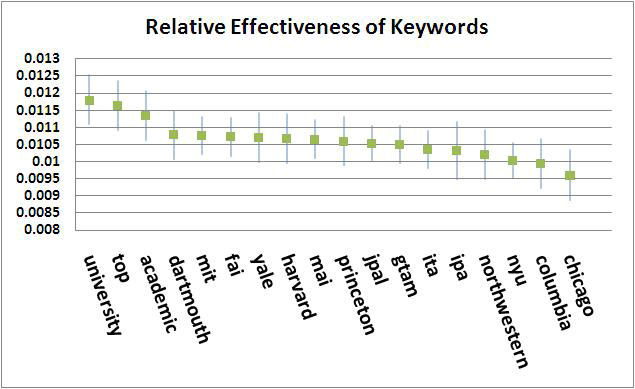Made-up acronym is as credible for poverty research as Harvard
Dean Karlan just ran a fascinating experiment (HT Chris Blattman):
We designed one that would help us optimize our advertising strategy while also settling an important score: which academic institution's rep pulls the most weight in cyberspace? Our ad was simple:Poverty Research
Breakthroughs to Fight Poverty
By [randomized] Researchers
Inside the brackets in the third line, Google ads then randomly inserted one of nine university names, one of three acronyms (IPA, JPAL, or FAI) , one of three "impostor" acronyms (ITA, GTAM, and MAI) that were phonetically similar to the real acronyms, or one of three generic words (university, top, and academic).
Dean then shows the picture depicting the results on ad effectiveness. Dean discusses relative rankings of different universities, but I think it's more interesting how a made-up acronym (MAI -- a variation on a real acronym FAI, which I even doubt many people recognize) did as well as Harvard (or more generally about as well or better than any university named).
This seems to confirm something I had noticed already: development academics' respect for academic brand-names (or any other measure of academic merit) is not shared by the development policy community. Why is this?
 From Aid to Equality
From Aid to Equality

